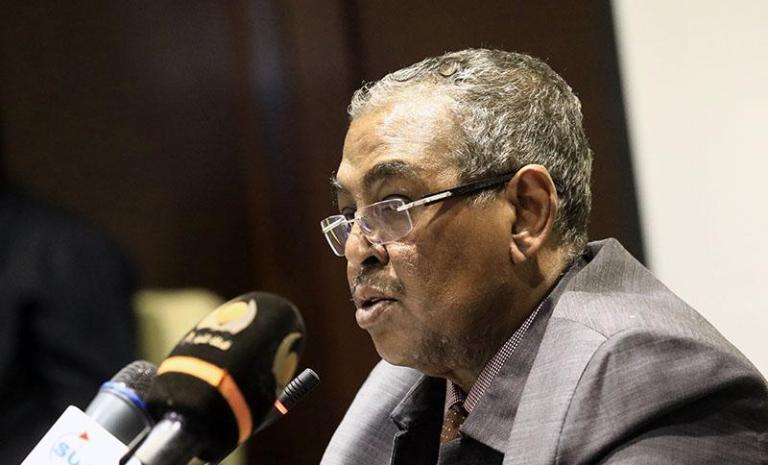Sudan appoints new “Task Government” to deal with ecomonic crisis

March 13, 2019 (KHARTOUM) – Sudan’s newly appointed Prime Minister Wednesday announced the names of his “Task Government” which includes 21 ministers seconded by 18 state ministers.
“I announce the forming of the new government which consists of 21 federal ministers, and 18 state ministers to address the economic crisis,’’ said Prime Minister Mohamed Taher Eila in a press conference held in Khartoum.
When he disbanded his former government and declared the state of emergency on 22 February, President Omer al-Bashir vowed that the new cabinet would be formed only of technocrats and experts to address the economic crisis that triggered the ongoing protests.
However, the new government included many former ministers some of them kept the same ministerial positions as the Minister of the Presidency Fadul Abdalla Fadul and Foreign Minister El-Dirdeiry Mohamed Ahmed.
Also, others changed their portfolio as Bushara Gumaa Aro who is appointed Interior Minister after being the Information Minister during the former government.
Among the few new faces, Barakat Musa Al-Hawati who is appointed Minister of Federal Government. During the national dialogue process, he headed the governance committee.
The same for the state ministers who were almost in the previous government.
In his speech to the press, the Prime Minister reiterated the government commitment to implement the outputs of the national dialogue and to resolve the economic problems, indicating that the formation of the new government came after wide consultation and substantial scrutiny.
He further pointed to the need to address the structural imbalances in the national economy through increased production in agriculture and industry besides supporting exports and reduce imports.
He further said his government would shut down some public enterprises and companies that “no longer have existing roles”.
Eila pledged to fight corruption, develop minerals industry and open the doors to the private sector and investment as well as raising the capital of national banks.
The failure of Sudan’s economic policies has caused a shortage of fuel, cash and bread, which in turn has led to a wave of unrest that has erupted across the country in the past three months.
(ST)
